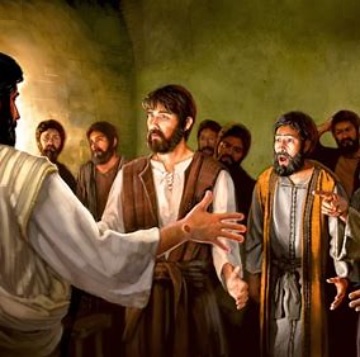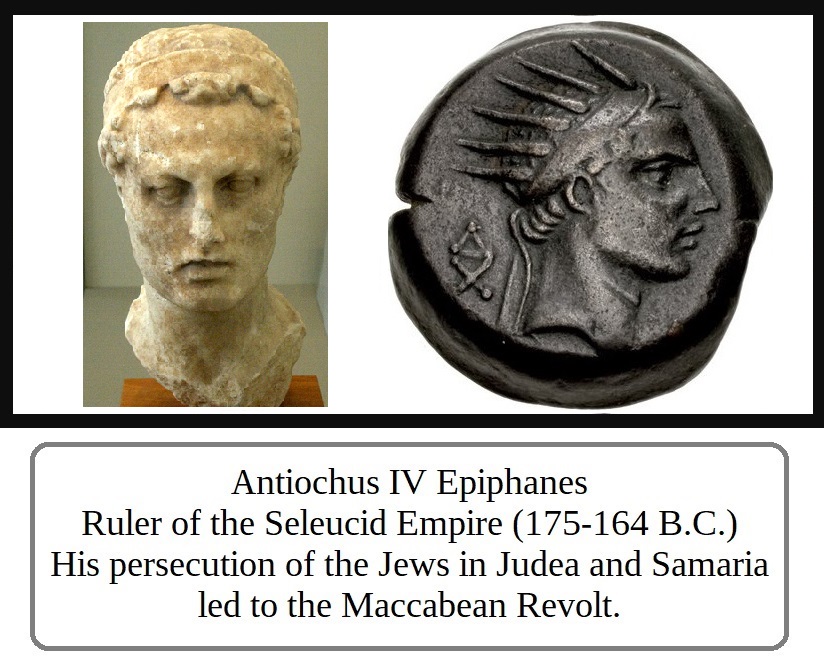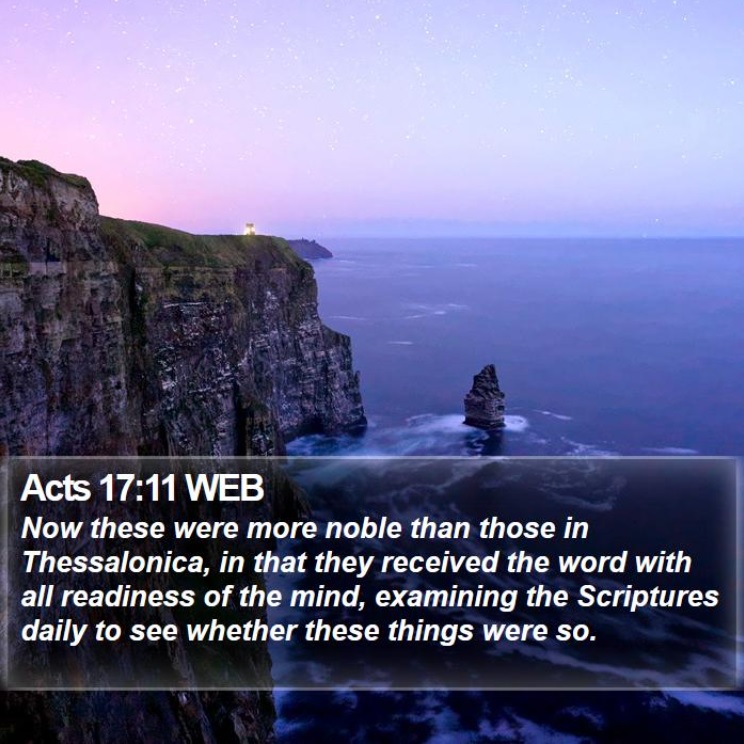“Go therefore and make disciples of all the nations…teaching them to observe all that I commanded you; and lo, I am with you always, even to the end of the age” (Matthew 28:19-20, NASB).
——————–
Contents:
1) Jesus is the Bread of Life (Kyle Pope)
2) News & Notes
——————–

-1-
Jesus is the Bread of Life
Kyle Pope
Since the beginning of man’s life outside the Garden of Eden bread has been the food God has set forth to sustain man’s life. In Adam’s punishment for sin he was told, “In the sweat of your face you shall eat bread till you return to the ground” (Gen. 3:19a, NKJV). The word translated “bread” in this verse is the Hebrew word lechem, which refers to both bread in a specific sense and food generally. When Israel was in the wilderness God fed them with a substance they named “manna,” meaning literally, “What is it?” Moses explained to them, “This is the bread (lechem) which the Lord has given you to eat” (Exod. 16:15). It was not a typical grain used to make bread, but it was ground into flour and baked into cakes (Num. 11:7-8). While it sustained them in the desert they were told later that it served another purpose. In Deuteronomy the people were told that God had given them this unusual bread, “that He might make you know that man shall not live by bread alone; but man lives by every word that proceeds from the mouth of the Lord” (Deut. 8:3b). Jesus appealed to this very text in His own temptation in the wilderness when Satan challenged Him to make bread from stones (Matt. 4:3-4). There is great irony here. The God who sentenced man to live by “bread,” while providing physical sustenance in the wilderness used it to demonstrate man’s need for the spiritual sustenance that comes from His word.
Sometime after Jesus’ temptation in the wilderness, but in terrain the gospel of Matthew calls “a deserted place” (Matt. 14:15) Jesus did exactly the same thing Deity had done to Israel centuries before. From five barley loaves and two small fish Jesus fed 5000 men (John 6:1-13). In this miracle, God in the flesh provided for man’s physical sustenance. This miracle, like no other Jesus did, led the people to seek to make Him a king by force (John 6:14-15). Even when He withdrew by Himself then crossed over the Sea of Galilee they still sought Him—because they “ate of the loaves and were filled” (John 6:22-26). In this context, Jesus called them to seek something different. They found Him as He taught in the synagogue in Capernaum (John 6:59). First, Jesus told them, “Do not labor for the food which perishes, but for the food which endures to everlasting life, which the Son of Man will give you” (John 6:27a). This moved them to recall God’s feeding of the Israelites in the wilderness, and they asked if He would provide a sign similar to that (John 6:30-31). Jesus then subtly introduced one of the most radical doctrines of His entire ministry. He told them, “the bread of God is He who comes down from heaven and gives life to the world” (John 6:33). The heavenly bread He would provide was a person! What could He mean by that? The people seem to have missed that He called a person “the bread of God,” and they first beg Him, “Lord, give us this bread always” (John 6:34). Jesus then clarified, “I am the bread of life. He who comes to Me shall never hunger, and he who believes in Me shall never thirst” (John 6:35). Even though He immediately explained that it is the one who believes in Him that will attain resurrection unto everlasting life (John 6:40), the people complained against Him because He said He was “the bread which came down from heaven” (John 6:41).
In spite of their confusion (and the confusion that still persists among some in the religious world today) we can see from Scriptures that follow that Jesus was really teaching the same point God made to the Israelites about the true source of spiritual sustenance. Notice one of the first indications of this. As He explained His heavenly origin He first paraphrases the prophets who foretold, “they shall all be taught by God” (John 6:45a)—a reference in part to Isaiah 54:13, which said, “your children shall be taught by the Lord.” He then explained how they would be taught—“everyone who has heard and learned from the Father comes to Me” (John 6:45b). Jesus would later teach His disciples, “the word which you hear is not Mine but the Father’s who sent Me” (John 14:24). Jesus was not promising personal and individual revelation. To learn from the teaching of Jesus was to hear and learn from the Father. He was talking about spiritual sustenance. He was talking about Himself as the source of spiritual life.
A second indication of this comes as He further explained His original statement, but did so in a way that tested the hearts of His hearers. They were quick to follow Him when they thought He would give them physical food—how would they respond when He offered them something challenging? He first affirmed His unity with the Father, telling them, “he who has seen Me has seen the Father” (John 6:46), then He restated that belief in Him leads to eternal life, since He is “the bread of life” (John 6:47-48). Yet rather than softening His message to draw as many disciples as possible—the strategy employed by much of the religious world today—Jesus sharpened His words and challenged them even further. He told them, “I am the living bread which came down from heaven. If anyone eats of this bread, he will live forever; and the bread that I shall give is My flesh, which I shall give for the life of the world” (John 6:51). This was too much for some of them. They complained, “How can this Man give us His flesh to eat?” (John 6:52). Jesus had returned to the point they had first raised about manna (John 6:49) and He would go on to compare His teaching with it again (John 6:58). They should have remembered that manna was given to teach them that “man lives by every word that proceeds from the mouth of the Lord” (Deut. 8:3b). Some missed the point.
Jesus then shocked them even further by saying, “unless you eat the flesh of the Son of Man and drink His blood, you have no life in you” (John 6:53) adding “My flesh is food indeed, and My blood is drink indeed” (John 6:55). Since at least the Middle Ages some have argued that in these words Jesus was teaching about the Lord’s Supper. It has been argued that in the prayer for the bread and the fruit of the vine a transformation takes place in these elements that transforms them into the literal body and blood of Jesus. We should notice, however, that nothing in the context makes any reference to the memorial meal, which would not even be instituted until long after this on the Passover night before Jesus’ betrayal (Matt. 26:26-30; Mark 14:22-26; Luke 22:14-23). In fact, the gospel of John is the one gospel that does not record its institution! It is highly unlikely that the Holy Spirit would intend this teaching completely out of the context of discussing the memorial to explain the purpose and nature of it without even recording its institution. Further, both the Law of Moses (Lev. 17:12) and the Law of Christ (Acts 21:25) explicitly prohibited the eating of blood. If the Lord’s Supper involves the literal eating of blood and human flesh it violates this prohibition.
Jesus was not talking about literally eating His flesh and blood. As one who had just fed the people physically, He was calling them to see in His life, His sacrifice, and ultimately in His words the true source of spiritual life. Just as manna was to make the Israelites see God’s word as the true source of life, Jesus was teaching the same thing on this occasion. Some said, “This is a hard saying; who can understand it?” (John 6:60). The Holy Spirit records, “From that time many of His disciples went back and walked with Him no more” (John 6:66). To those who did not turn away, Jesus asked, “Does this offend you?” (John 6:61). He then made it absolutely clear, “It is the Spirit who gives life; the flesh profits nothing. The words that I speak to you are spirit, and they are life” (John 6:63). We feed on Jesus’ flesh and blood by ingesting the words that He teaches. It is the message of Jesus’ sacrifice on our behalf that brings life (cf. Rom. 1:16). Faith in Jesus as this sacrifice and obedience to Jesus’ teaching leads ultimately to resurrection unto eternal life on the “last day” (John 6:39, 44, 54). Although some missed His point those who stayed with Him understood. When Jesus asked the twelve, “Do you also want to go away?” (John 6:67a), Peter gave an answer that summarized the entire focus of this discourse. He said, “Lord, to whom shall we go? You have the words of eternal life” (John 6:67b). Peter realized what God wanted Israel to recognize in the wilderness. Peter realized what the feeding of the 5000 should have taught these people. “Man shall not live by bread alone, but by every word that proceeds from the mouth of God” (Matt. 4:4). That is how we feed upon Jesus’ flesh and blood. That is how Jesus is for us, “the bread of life.” Upon what will you feed? To whom will you go?
— Via Faithful Sayings, Issue 17.41, October 15, 2015
——————–
-2-
News & Notes
Folks to remember in prayer, due to their health:
Kayla Williams had been in the ICU recently with diabetic ketoacidosis, but is now doing better.
Others to also keep in prayer: Rex Hadley, June Peters, Alex Cornelius, Rick Cuthbertson, A.J. & Pat Joyner, Donald Sears, Ronnie Davis, Jim Lively, Doyle Rittenhouse, Tammy Griffey, Deborah Medlock, Lois Fletcher, Vivian Foster, Danielle Bartlett, and Kim Rowell.
Due to there being 5 Sundays in May, Danny Bartlett will be preaching for us on the 29th.
We will resume our Wednesday evening Bible class June 1 at our regular time of 7 p.m.
——————–
The Steps That Lead to Eternal Salvation
1) Hear the gospel — for that is how faith comes (Rom. 10:17; John 20:30-31).
2) Believe in the deity of Jesus Christ, the Son of God (John 8:24; John 3:18).
3) Repent of sins. For every accountable person has sinned (Romans 3:23; Romans 3:10), which causes one to be spiritually dead (Ephesians 2:1) and separated from God (Isaiah 59:1-2; Romans 6:23). Therefore, repentance of sin is necessary (Luke 13:5; Acts 17:30). For whether the sin seems great or small, there will still be the same penalty for either (Matt. 12:36-37; 2 Cor. 5:10) — and even for a lie (Rev. 21:8).
4) Confess faith in Christ (Rom. 10:9-10; Acts 8:36-38).
5) Be baptized in water for the remission of sins (Mark 16:16; Acts 2:38; 22:16; 1 Pet. 3:21). This is the final step that puts one into Christ (Gal. 3:26-27). For from that baptism, one is then raised as a new creature (2 Cor. 5:17), having all sins forgiven and beginning a new life as a Christian (Rom. 6:3-4). For the one being baptized does so “through faith in the working of God” (Col. 2:12). In other words, believing that God will keep His word and forgive after one submits to these necessary steps. And now as a Christian, we then need to…
6) Continue in the faith by living for the Lord; for, if not, salvation can be lost (Matt. 24:13; Heb. 10:36-39; Rev. 2:10; 2 Pet. 2:20-22).
——————–
Tebeau Street
CHURCH OF CHRIST
1402 Tebeau Street, Waycross, GA 31501
Sunday:
9 a.m. Bible Class
10 a.m. Worship Service
5 p.m. Song Service every first Sunday of the month
Wednesday:
7 p.m. Bible class
evangelist/editor: Tom Edwards (912) 281-9917
Tom@ThomasTEdwards.com
https://thomastedwards.com/go/all.htm (This is a link to the older version of the Gospel Observer website, but with bulletins going back to March 4, 1990.)











